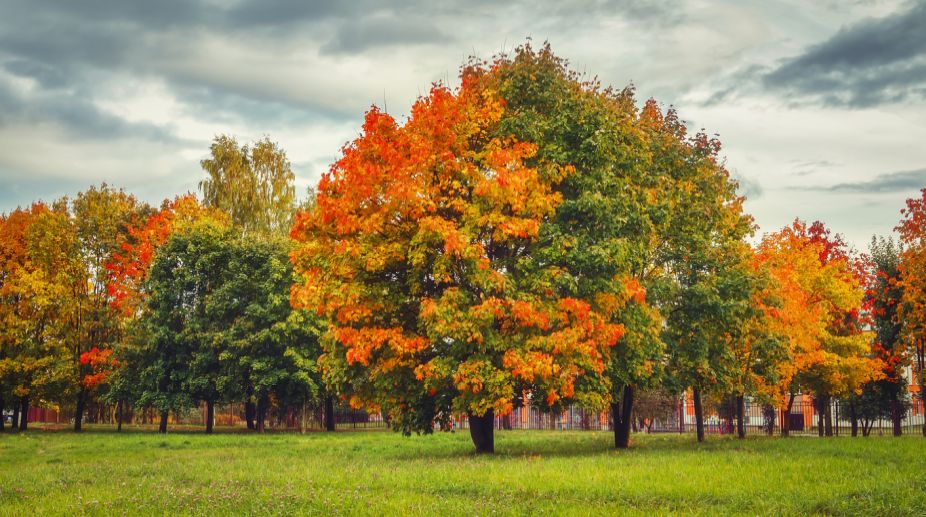We are into autumn and reflecting on this remarkable season evokes its unique characteristics. Autumn is also known as “fall”, which refers to leaves falling off trees during this season. The falling of leaves begin when they change colour from green to red, or golden yellow and, some species, to a vivid shade of orange.
When leaves begin to fall, it signifies the end of harvest time. Temperatures are milder as the heat of summer has passed and the chill of winter is yet to come.
The season has inspired poets like John Keats and William Wordsworth. In fact, Wordsworth’s
Thought On The Seasons, extols autumn and articulates harvesting and the changing hues of leaves, When earth repays with golden leaves
The labours of the plough,
And ripening fruits and forest leaves All brighten on the bough;
What pensive beauty autumn shows,
Before she hears the sound Of winter rushing in,
to close The emblematic round!
The famous poet, Robert Frost, who was awarded the Pulitzer Prize, focused on a poem that reflected the completion of harvesting apples and titled it
After Apple Picking,
… there may be two or three Apples I didn’t pick upon some bough.
But I am done with apple picking now
Autumn began with the time of harvest for people who depended on farming. In the 1500s autumn was called “harvest” because, at this time, fruit and vegetables were picked and a part of the produce was stored for the winter months. As society developed and some people moved off farms to migrate to cities or work in factories, the term “harvest” was replaced with autumn or fall. In the West, Thanksgiving and Halloween are festivals symbolic with harvesting.
The Jewish holiday of Sukkot and the Chinese Moon Festival are observed in autumn, as a mark of appreciation for the good food at this time of the year. Special recipes are dedicated to the season. The famous Thai Pumpkin Soup, the special autumn tomato chutney and cheesy autumn mushrooms, are a few of the top 20 autumn recipes of the world. In the realms of literature, a Polish writer called Wladyslaw Reymont wrote The Peasants, a four volume narrative with each of the four books titled in honour of a season.
The volume, Autumn, published in 1904, was about the relationship of human life with nature. He highlighted the joys derived from autumn; how a bountiful harvest enabled farmers to earn money from the farm’s produce and to plan for marriages of their children. Reymont was awarded the Nobel Prize in Literature in 1924, “for his great national epic, The Peasants.”
His articulation of the vital role of the four seasons brought to life something humanity took for granted. He rose from a life of poverty to incredible fame and in his first interview, after receiving the Nobel Prize, said, “Suddenly the great doors of fame were opened before me.
Today I have to assume the visage of a famous person. Isn’t it laughable? I have suddenly become the pride of my nation!” This man who lived, once, on a few slices of bread, brought recognition to his hometown Lodz, in Poland. Back home, in India, as the intensity of the monsoon showers reduce, one looks up to the sky to see the almost “tired” appearance of clouds, looking weary and old. They are replaced by new drifting clouds, which resemble huge blobs of cotton, and the last vestiges of dark ominous clouds have gone away.
Autumn has set in and with it a metamorphosis is visible on a lot of trees, with different hues on their leaves. But the crowning glory of autumn, in India, is the festivals. Durga Puja, Lakshmi Puja, Kali Puja and Diwali lift up the spirits of people. The rich and poor are clad in new garments, the result of many weeks of planning for this auspicious time of the year. The puja season is impacted by commercial activities involving clay modellers, decorators, tailors and sweet houses, all of whom are preoccupied by brisk business during this time.
Autumn is a time when people plan to travel and in Bengal the Darjeeling Hills are an attractive option. The tea plantations of Darjeeling are imbued with the rare autumnal muscatel flavour in tea. This mysterious quality is elusive, difficult to describe, but is identified when it is tasted in a certain batch of tea. It will be relevant to conclude with Reymont’s thoughts, because he weaves agriculture into his narrative about autumn, which culminates in harvest, and is integral to the survival and happiness of humanity.
The author’s prescription for a successful harvest is simple, “One has to plow in order to sow, one has to sow in order to harvest, and what is disturbing has to be weeded out…











